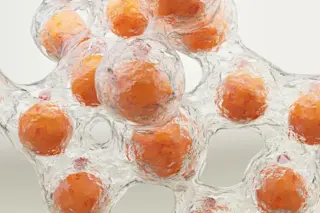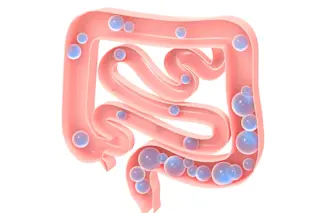About ten years ago, Ilene Bernstein, a behavioral neuroscientist at the University of Washington in Seattle, came across an interesting paper. Researchers had given pregnant rats a diuretic, which made them lose fluids and sodium. The offspring of those rats showed a distinct preference for salt. "In the paper," says Bernstein, "the authors speculated, I thought rather wildly, that this research might suggest a link between a mother's morning sickness and her offspring's taste for salt. I later met one of the authors, and he said his own mother had had morning sickness and he was crazy about salt. And I thought, ëThis is the silliest thing I've ever heard of.'"
More recently, while teaching an undergraduate psychology class, Bernstein thought she'd use the study to help her students understand how to test a hypothesis. She surveyed the students about their taste for salt and had them ask their mothers ...














